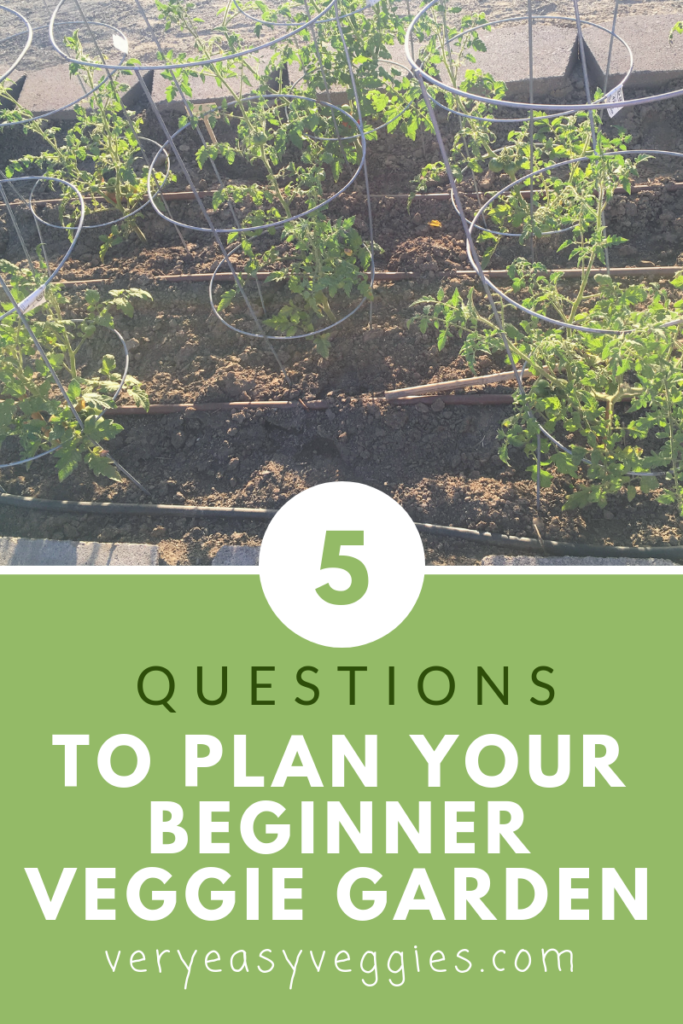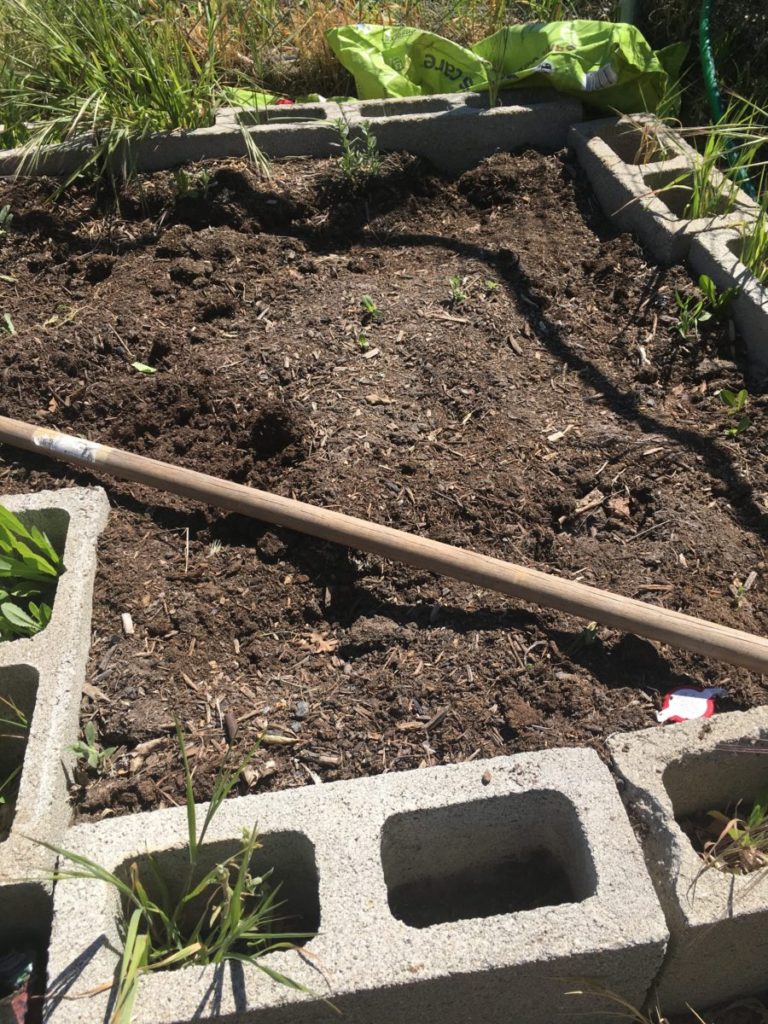For a gardener, there are few things as exciting as looking ahead to spring and planning a vegetable garden! This garden planning series will guide you in all you need to know to plan your vegetable garden.
Especially for a beginner, planning in advance will help you succeed and get the most out of your garden. When planning your first vegetable garden, here are five essential questions you should ask yourself.
(This post contains affiliate links).

Note: because of recent events, many online seed suppliers are running low or selling out, but Botanical Interests and MIGardener still seem to have a good amount for now.
Choosing location: What do you have to work with?
-How much space do you have?
If you don’t have much space, plan to start small. Choose two or three vegetables that you love and that are easy to grow. If you’re growing in pots, make sure they’re big enough, and read this post to know what you need to succeed with container gardening.
If you have a lot of space, you should still resist the urge to plant EVERYTHING your first year. Start with just a few favorites, and make sure to include some that are easy to grow and short days-to-harvest to give you some payoff!
For patio planting, a cloth “raised bed” container like the ones in the affiliate link below could also work for you!

-How much sunlight?
Before you get too carried away planning and preparing one particular spot for your garden, make sure it gets enough sunlight! Most veggies need at least 6-8 hours of direct sunlight per day. Don’t forget that the sun’s position may shift a little as the season goes on, depending on your location.
If you don’t have a spot that gets that much sun, you can still give it a try. You will have better luck with plants that tolerate less sunlight, like lettuce, spinach, chard, broccoli, peas, carrots & root veggies (most of these also do best with lower temperatures).
It’s easy to overestimate how much sun an area gets, so if you want to be extra sure you can grab a combo soil tester/sunlight meter.
What method?
It could probably be said that there are hundreds of different gardening methods, but for the most part they break down into three groups… Container gardening (pots), raised bed gardening, or in-ground gardening.
How much time do you have? If you don’t have a lot of time, you should consider a time saving set up like this one. That way all you really have to do is wait, watch, and pick!
Personally, I prefer raised beds for many reasons. They work great especially for small and medium spaces, since you can generally get more produce from them per square foot than other methods. Some people choose pots or containers for very limited space. It can be more challenging to keep potted veggies well watered and “fed” (fertilized), though, at least if you live somewhere hot or dry & windy like I do.
Others may immediately think of planting in the ground when they start planning a garden. If you choose this method you absolutely have to add good stuff to your soil (like compost, etc) if you want to get anything from your plants. Read more about in-ground gardens and soil preparation in this post.
What is worth growing?
This is a complex question that people approach from different angles. Some say growing your own veggies is not worth the time and cost at all. Obviously I beg to differ! However the monetary angle may still be worth considering. That’s what the book below is about.
Find my list of quickest-harvest beginner friendly veggies here!
Some like to compare the amount of space and time that veggies need to grow, compared to their store price. For instance cabbage, carrots, potatoes, and corn are usually very cheap at the store, so I often don’t bother giving my garden space to them. However this year I did really enjoy growing my own purple carrots!
A few other questions to help you consider what is worth growing:
- What will you actually use (fresh or preserved)?
- What is the cost comparison at the store?
- How much better does home grown taste than store-bought? (Tomatoes don’t even compare!!)
- How long does it take to grow? (check the “Days to harvest”–watermelons are fun, but squash will be ready to harvest in half the time!)
- How much space and time a plant needs versus how much it produces?
- how easily does it grow in my area?
- Will your own produce be healthier than store-bought?
Maybe your primary motivation is not cost, but health—you want to know where and how your food grows and make sure it’s clean. Gotta be honest, all the lettuce recalls lately make it a lot more desirable for me to try to grow as much of my own salad greens as I can!
But perhaps most of all: how much use and joy will I get from growing it? Though gardening can save you money on produce, that’s definitely not the only motivation for most gardeners.
These questions should give you enough to consider until my next post: planning your garden layout! Subscribe by email If you’d like monthly tips and checklists for your garden!
But in the meantime, here are some examples to help you start visualizing.
Some Example Ideas
- The small patio garden: Some herbs, healthy leafy greens like chard, lettuce, etc. If there’s enough sunlight, maybe a smaller squash or tomato in a large container.
- A mid-size raised bed garden: 2-5 squash/zucchini plants, 4-8 tomato plants (maybe I’m just a tomato addict), 2-5 cucumber plants and pepper plants. Optional: a bed of bush beans, pole green beans in the back (so they don’t shade the others), or a few bush bean plants scattered in among the other plants to help them grow (bean plants add nitrogen to the soil).
- The larger garden... start adding more of your favorites or some new varieties and, well, you get the idea! To be honest, by the time you’re ready for a larger garden, I’m sure you’ll have more than enough ideas to get you completely carried away!
If you’d like to figure out when to plant, check this post!
Want more beginner garden tips to help you throughout the year? Subscribe to our monthly email digest below!

